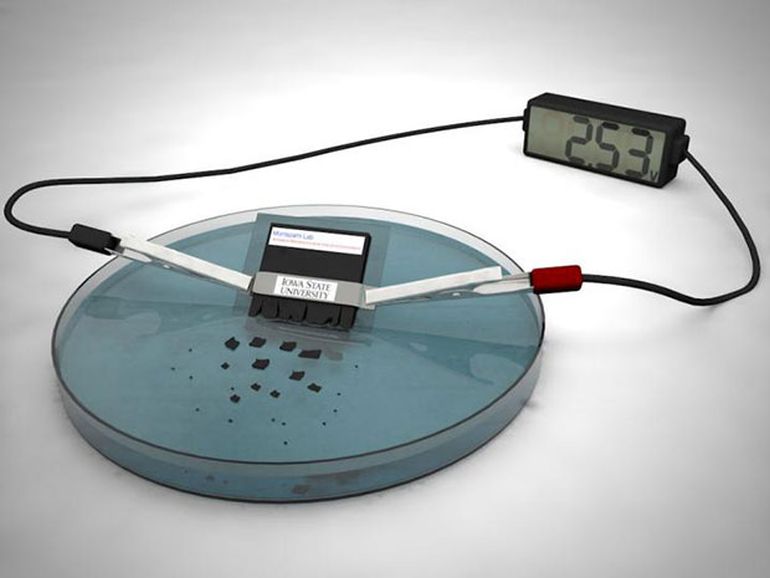A Mission Impossible Battery that self destructs.
Here at HEXAPOLIS, we have talked about biodegradable electronics that are designed to automatically dissolve once their job is done. Such self-destructing devices could be especially useful in the world of medicine, where implants currently have to be surgically removed, as well as the military. As part of a new research, scientists at the Iowa State University have devised an innovative transient battery, which as its name suggests can melt away in less than 30 minutes.
Technological advancements in recent years have allowed researchers to develop an array of self-destructing electronics that are capable of performing specific functions. Up until now, however, these devices were driven by external power sources. Previous attempts to create transient batteries largely gave birth to contraptions that lacked power, stability and a substantial shelf life. More often than not, they were also quite slow in demolishing themselves. Speaking about the research, recently published in the Journal of Polymer Science, Part B: Polymer Physics, the team stated:
Unlike conventional electronics that are designed to last for extensive periods of time, a key and unique attribute of transient electronics is to operate over a typically short and well-defined period, and undergo fast and, ideally, complete self-deconstruction and vanish when transiency is triggered. Any device without a transient power source isn’t really transient. This is a battery with all the working components. It’s much more complex than our previous work with transient electronics.
